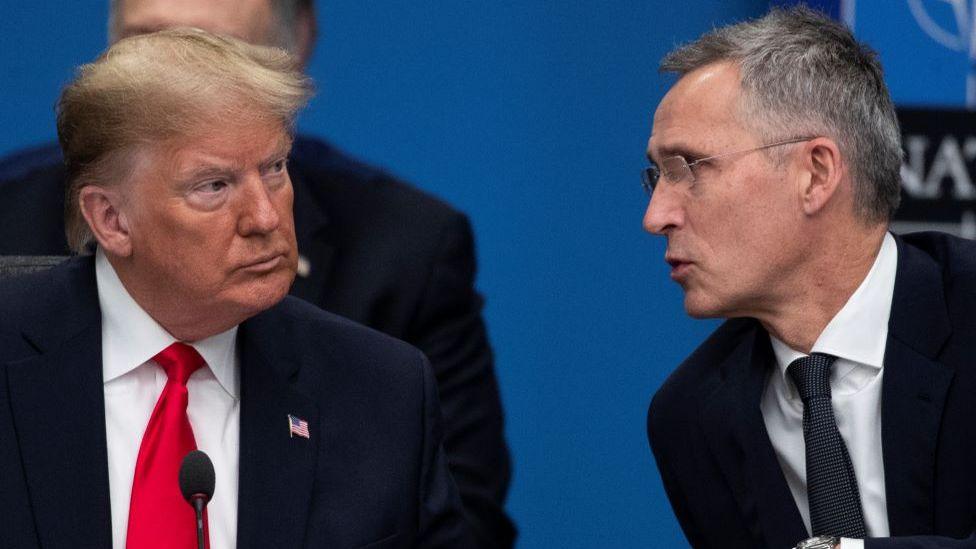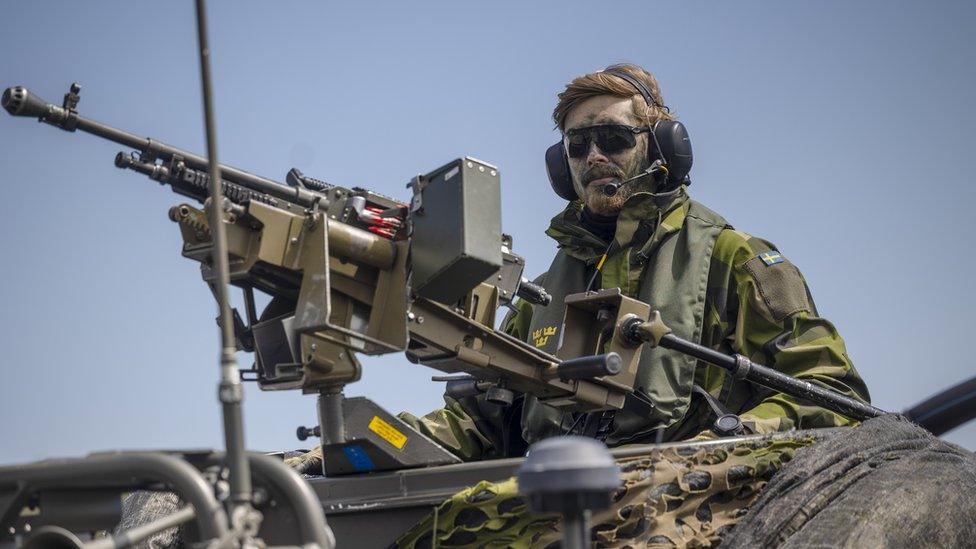Could election change protection US offers Europe?
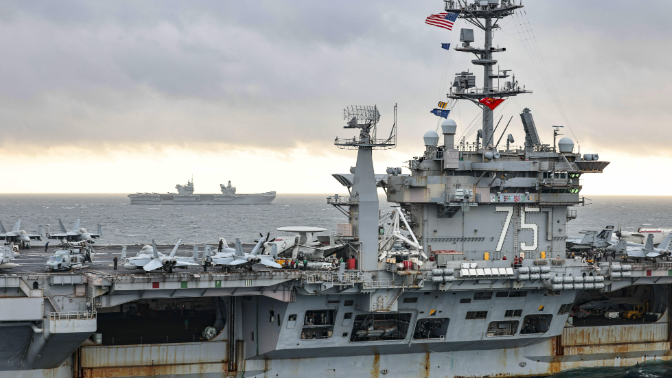
- Published
A US carrier strike group - a major fleet of warships - is a potent symbol of American military power and a signal that it's willing to defend allies and deter enemies.
So the presence of such a force in the North Sea over the past few weeks is meant to reassure European allies, despite the political uncertainties back home.
American military power has helped protect Europe for the past 75 years - but the US presidential election raises the question: for how much longer?
Military commanders do their best to avoid politics.
But among a group of journalists invited on board the USS Harry S Truman, the US presidential race was high on the agenda. The question was: will America still have Europe's back?
Rear Adm Sean Bailey said: "What I can tell you is we are firmly committed to our alliance, firmly committed to Nato."
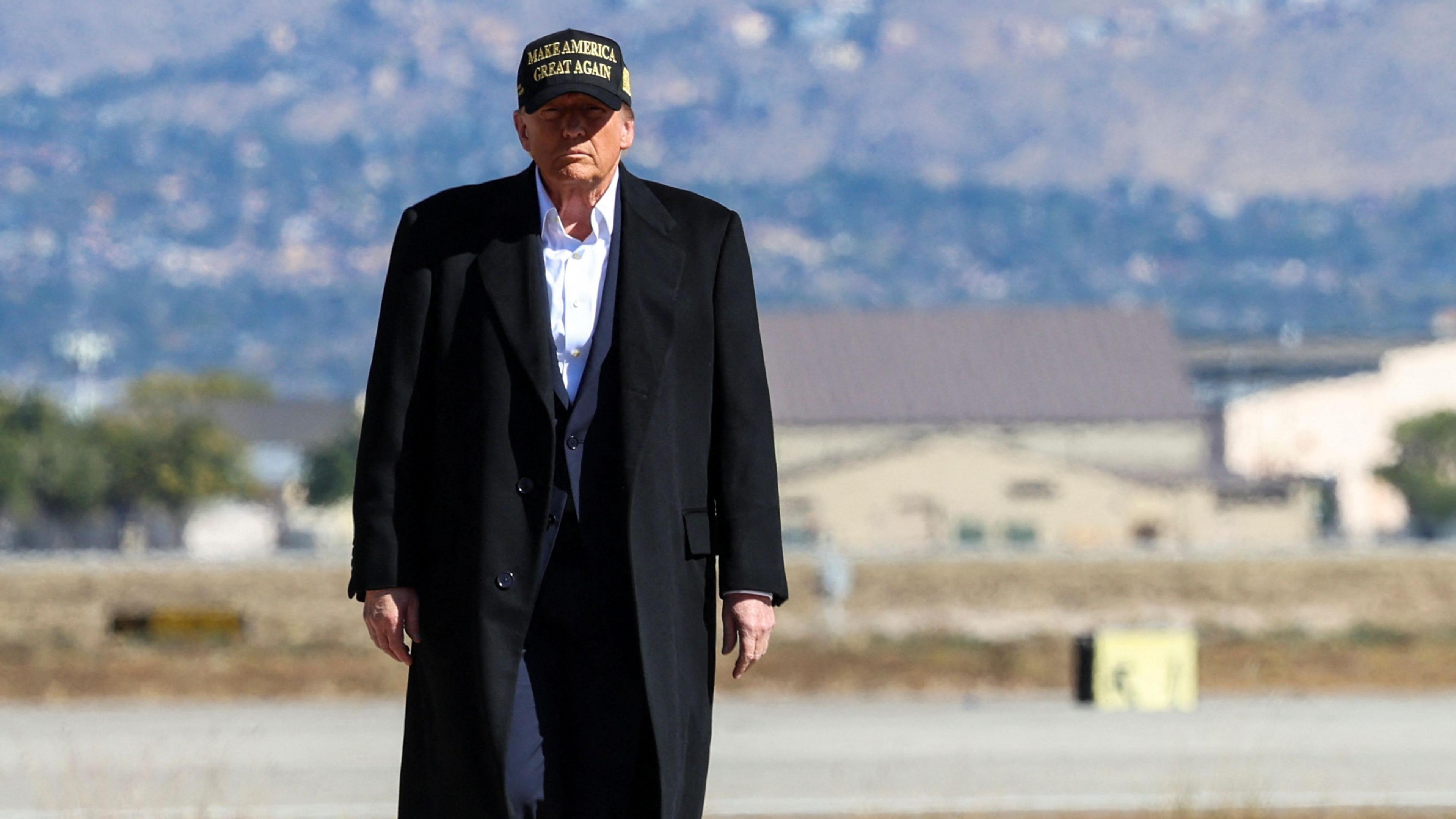
But he's not the one who will be deciding US foreign policy, and nor is his answer likely to assuage doubts.
Germany's Defence Minister, Boris Pistorius, knows change is in the air.
Asked about the likely impact of the US election on Europe last week, he said it was a question of whether America does "a lot less, or a little bit less".
He didn't mention names, but it's Donald Trump who's likely to do a lot less.
USS Harry S Truman proudly bears the name of the president who helped establish Nato 75 years ago.
But a second Trump term could once again shake the alliance to its very core.
The Truman doctrine of giving military, economic and political support to democratic nations under threat is very different to Trump's policy of America First.
He recently said Russia can "do whatever the hell they want" to allies who don't spend enough on defence.
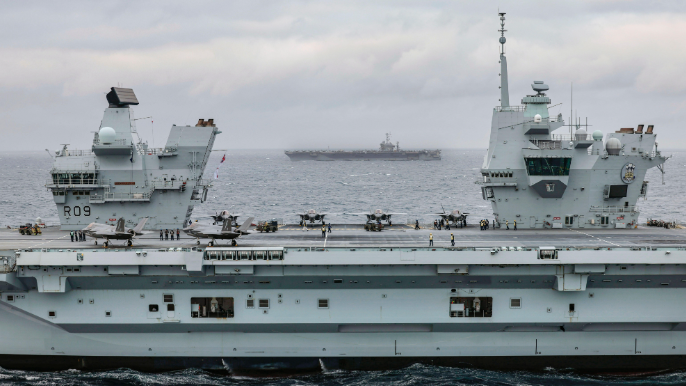
Any US withdrawal from Europe would leave a large hole.
The USS Harry S Truman is proof of what America brings in sheer size and numbers - with 5,000 crew and more than 60 aircraft.
The Royal Navy's carrier, HMS Prince of Wales, sailing nearby, provided a reminder of Europe's more modest defences.
The British carrier was sailing with an air wing of a few helicopters and eight F-35 jets - a pale reflection of US military clout.
Overall the US has more than 100,000 military personnel deployed in Europe.
Last time he was president, Trump threatened to withdraw some of those forces. If elected he could do the same again.
Many Republicans believe Europe should look after itself. That's certainly the view of Elbridge Colby, a senior Pentagon official in the last Trump administration.
He says the US should "withhold" its forces from Europe to focus on the threat posed by China.
The election will also have an impact on US military aid to Ukraine - America is by far its biggest military backer.
But a senior Nato official, who did not want to be named, recently told the BBC "regardless of who wins the share of America's contribution to Ukraine will probably decrease in relative terms".
Europe, he said, can't expect the US to continue giving an "outsized" contribution.
The reality is that America's military focus has already been shifting east to the Indo-Pacific region and the rise of China.
The Pentagon identifies China as its greatest security challenge. China now has a larger navy than the US. It's building a fleet the size of the entire Royal Navy every two years.
The sailors and pilots on board the carrier recognise there's a pivot east too.
Cdr Bernie Lutz has spent much of his naval career flying F-18s off a US carrier in the Pacific and Middle East.
He recognises why they're now sailing in European waters. "There's a lot going on," he says.
But he adds, "I think the Pacific theatre is the bigger, overarching long-term goal".
Like the rest of the 5,000-strong crew of the carrier, he has not yet been told where they'll be sailing next - but it's been widely reported that the USS Harry S Truman will soon be on its way to the Middle East.
That region, too, will remain a challenge for whoever's president next.
Capt Dave Snowden says he's happy to carry the banner of de-escalation or deterrence or even sail into harm's way - wherever the carrier's sent.
But the lack of serious foreign policy debate in the election reflects a reluctance to get directly involved in more wars.
America will still remain the world's most pre-eminent military power.
The question is how will the next president use it.
- Published29 October 2024
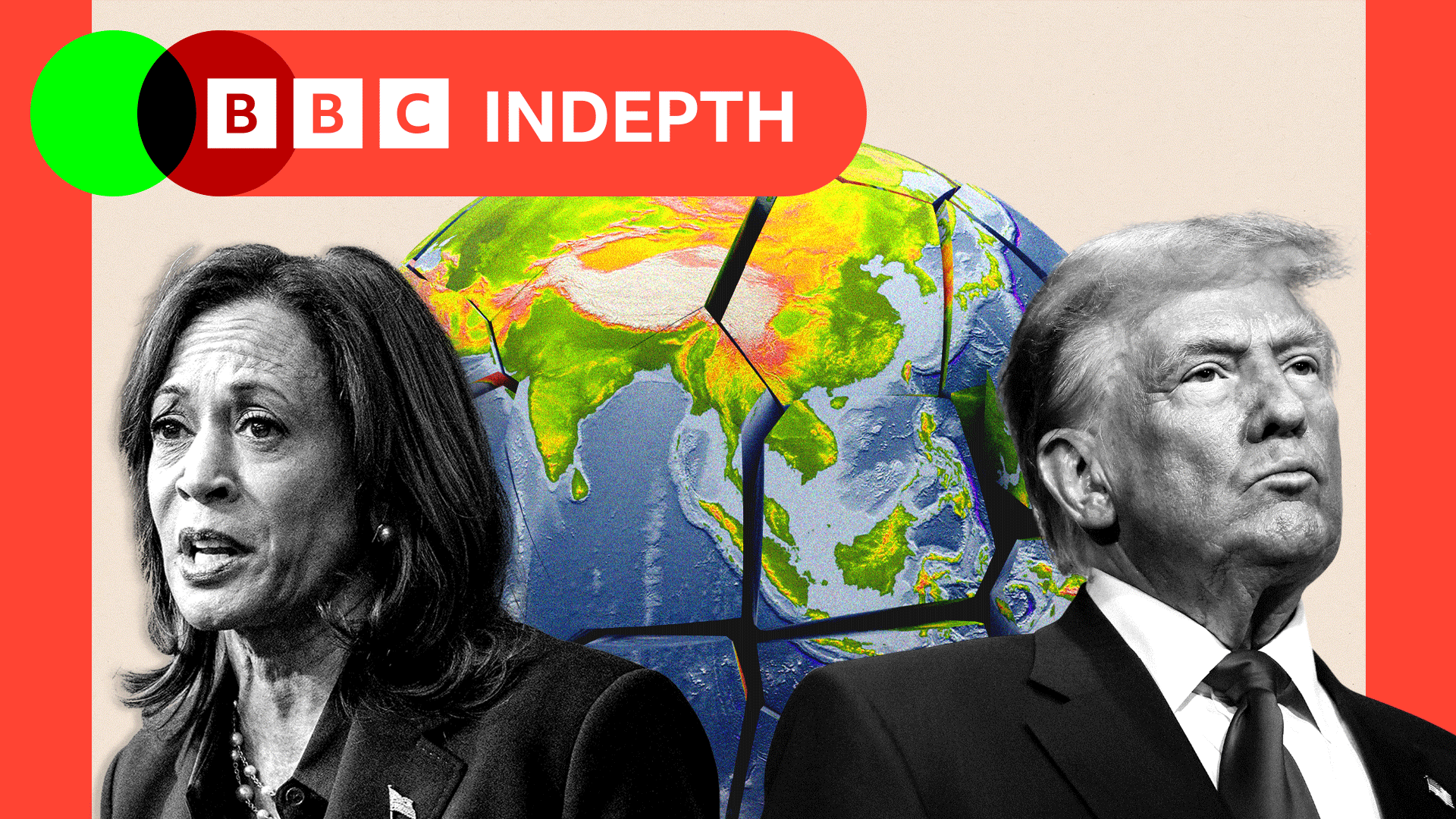
- Published31 October 2024
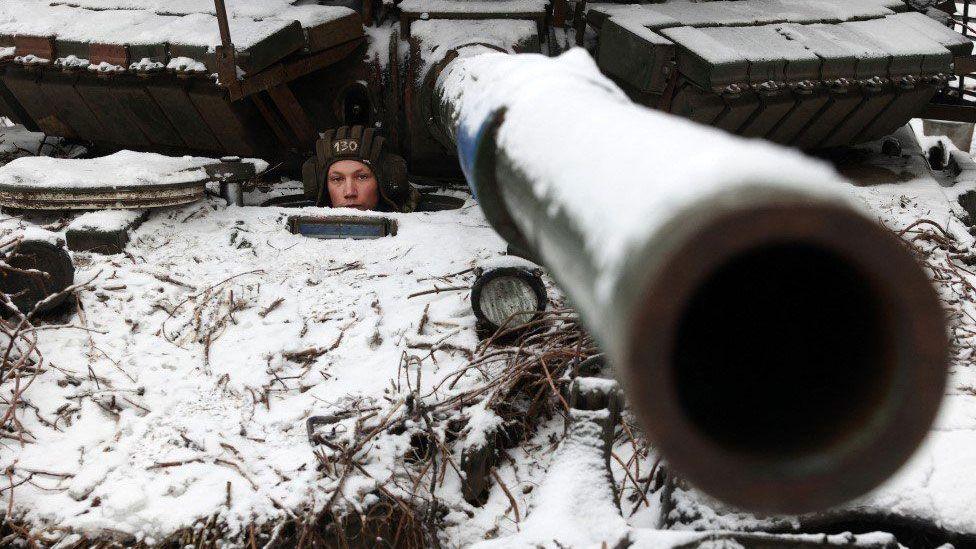
- Published12 July 2024
